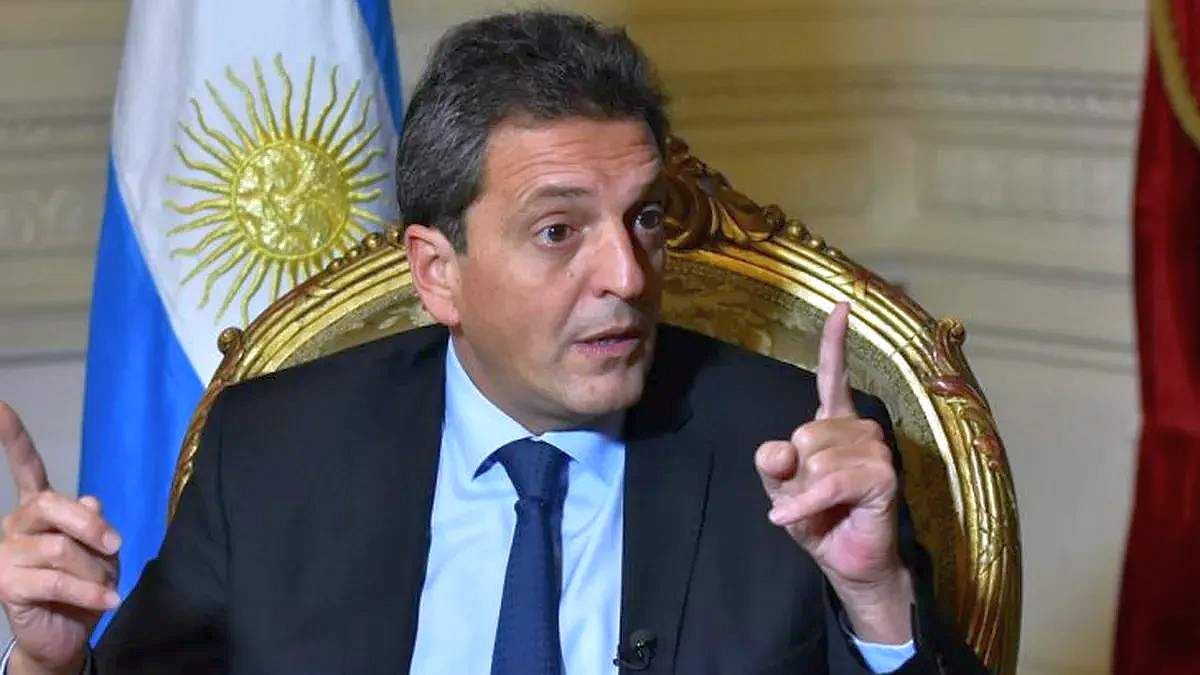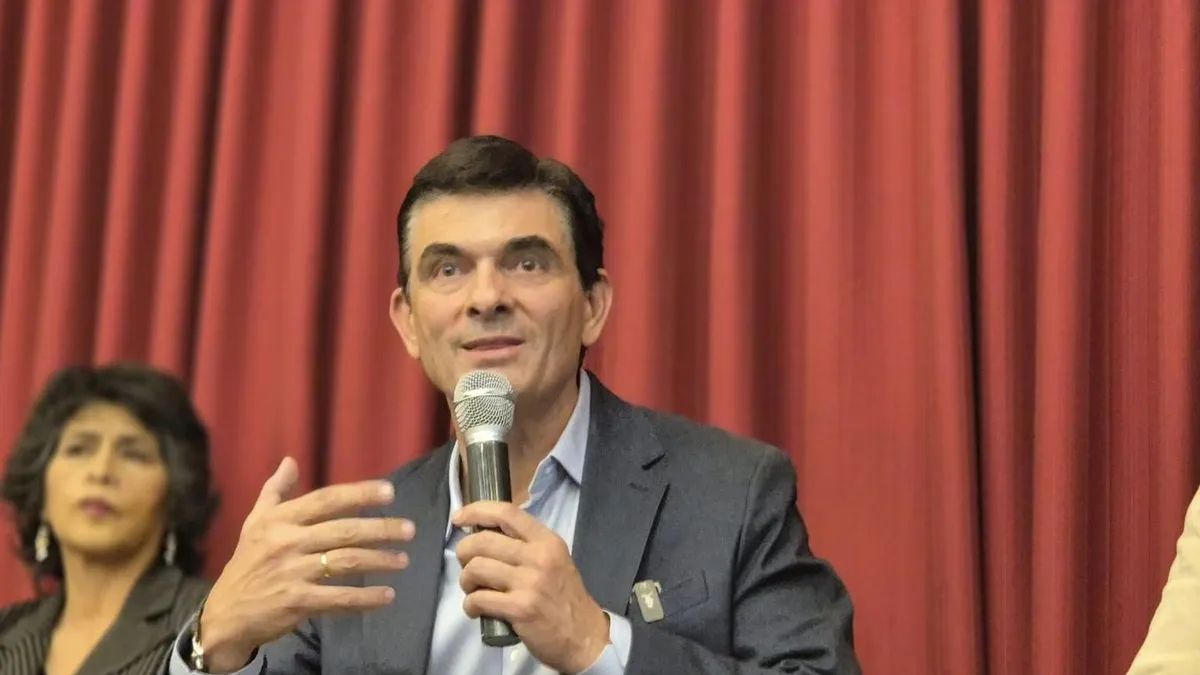40 years have passed since democratic recovery. We must assume that democracy is a consolidated value, apart from a certain frustration that has accumulated these years because, paraphrasing Raul Alfonsin Not everyone has been able to eat, be educated or cured, or if they do, their expectations have not been met. But it is true that no other system has demonstrated that it can guarantee these essential rights including the right to life and liberty.
A presidential election is a crucial instance where citizens choose, or as in the case of a “ballotage” opt. Never in these 40 years has the crossroads been so dramatic.
Without a doubt, in this option there are three central issues to consider: the personality of the candidate, the values he represents and the ability to execute the popular mandate. I am going to give the seven reasons why Sergio Massa is the best candidate in the runoff to address those 3 fundamental reasons.
1) Experience. A fundamental factor in choosing a president is his experience. Life and management experience. Clearly Argentina is not a developing country that can experiment exotically and frivolously in a particularly complex context. The fact of doing the experience from the bottom up is worth a lot. Director of Anses, Deputy, Mayor, President of the Chamber of Deputies, Minister of Economy gives a “expertse” which includes knowing the buttons of the National and Subnational State and also extensive knowledge of the parliamentary field. Although someone may argue that the leader of another space could give him “borrowed experience,” clearly the model of a President who is not the leader of the ruling force is not a model that has worked in Argentina.
2) International contacts. Due to his management experience, Massa deeply knows Heads of State, Ministers, other Government Authorities and International Organizations, businessmen and other top-level personalities at the international level, which facilitates and accelerates, by knowing the institutions, people, times and forms, optimizing geostrategic, security, defense, productive, commercial and financial alliances, in a multipolar conception that avoids both offending States or authorities and breaking diplomatic relations with neighboring countries or relevant powers worldwide.
3) Bargaining power. A government without parliamentary majorities requires having a born negotiator in charge of the Executive Branch who can articulate consensus to obtain essential laws for Argentina that can last over time, providing certainty and avoiding a tragic pendulum like Sisyphus that forces each Government to start over. almost from zero, in addition to being able to articulate negotiations between capital and labor to take both cyclical measures (inflationary plan) and structural measures (development strategy that includes consensual reforms of both the State and the modernization of labor relations, tax issues that affect the Nation-Province relationship and pension issues) that involve increasing productivity, removing unjustified privileges, without reducing essential rights.
4) Emotion balanceto the. ORA leader needs to balance his personal emotions, not encourage hatred, even when there are reasonable causes for collective anger. Good decisions are made through dialogue and reason. In situations of stress and in a complex context, emotional intelligence is tested to assess the political, economic and social impact of decisions that must move away from outbursts, whims, prejudices or theories that do not apply in the world and much less with violent ways. Emotional balance helps stabilize competing interests and economic variables beyond theories, models and “Excel”
Values
5) End of the Rift. Pacifying Argentina by integrating opposing visions is a fundamental value for the time to come. Clearly, Massa, unlike Milei, clearly proclaims the need for a Coalition Government that promotes national unity, which includes Peronists, radicals, liberals, socialists, provincial forces and other traditions of the Argentine political arc. There is no solution to political, economic and social problems through violence or the suppression of the other. Massa himself represents a Center with edges that are in some cases moderate center-right and others more progressive center-left in relation to Milei’s extreme right.
6) Democratic and human values. If there is something that no one openly discussed as a political force with the capacity to be a government, it is the universal value of human and civic rights of the past and present, including new rights, some of them recently stigmatized as “having lice.” Much less openly claim the Dictatorship as the candidate for Vice President of LLA.
In these 40 years, the right to life and freedom, dear to the republican and liberal traditions and valued by radicalism, were not questioned. Nor were economic and social rights ever questioned, beyond the legitimate differences on how to achieve these objectives, much less trivializing the right that generates essential needs. Nor does anyone in their right mind think of introducing market relations for the right to life and bodily integrity.
The Argentine political arc from Alfonsín to the present did not question the political sovereignty, economic independence and social justice that Peronism introduced as permanent values. With Milei, monetary sovereignty is at risk with dollarization, that of the Malvinas in particular and Patagonia in general and that of the natural resources of Argentina as a whole, which would generate a strong national and social disintegration. Regarding social justice, Milei defined it as “aberration.” Thus, essential universal rights are at serious risk while maintaining denialism of both genocides and climate change.
Ability to execute the popular mandate
7) Legislative consensus: Clearly Massa, not only due to personal attributes and values agreed upon by Peronism and other political forces sensitive to public health and public education, has the critical mass of his own support and a varied range of supports that guarantee legislative support for the Government of Coalition. Libertad Avanza would not have its own majority and has a very weak institutional framework outside of the characteristics of its candidate, which would increase a path of instability, violence and ungovernability in the country if it tried to implement its program with blood and fire.
These are 7 of countless reasons. Some could argue that beyond these factors and the leap into the void that an LLA government would imply, a change is necessary.
There is no doubt that we are experiencing a change of era, a third stage in democracy after 20 years of radical and Peronist hegemony that imploded in 2001 and a Kirchnerist and Macrist predominance that predominated in the following 20 years.
This is not a time for shortcuts, patches or short-termism. Massa will embody a change that will surely integrate all those traditions and values of individual and social rights to bury the rift and advance on a path of development with equity. But a change in democracy, in peace, a truly viable change, without exclusions or violence. Massa knows that if he wins he must be the protagonist of a true political, economic and social change in democracy and with consensus to avoid considerable institutional risks that would be certain if LLA triumphs.
Source: Ambito
David William is a talented author who has made a name for himself in the world of writing. He is a professional author who writes on a wide range of topics, from general interest to opinion news. David is currently working as a writer at 24 hours worlds where he brings his unique perspective and in-depth research to his articles, making them both informative and engaging.




